General
Touch is as well a crucial skill for robots that physically interact with objects and humans, to learn the properties of objects, how to manipulate them and to enable cooperative behavior where robots and people act together to accomplish a task. It is even more critical in the successful deployment of prosthetic devices to give the user the sensation of contact and a richer set of information that can make the use of prostheses easier and more acceptable.
The mini-symposium will focus on artificial touch and the cutting-edge methods and technologies for its deployment in robotics and prosthetics. Most often, the different core competencies related to artificial touche, such as biological touch understanding, computational models of neural coding, sensing technologies, and neuromorphic engineering, are addressed separately while great benefit could be obtained by cross-contributions among the fields.
Program
The event takes place May 4th, 2021 between 17.00 and 19.00 (CEST).
The event is divided into two parts: 3 lectures delivered by Neutouch's fellows, and a panel session.
Schedule
| Time | Speaker | Title | Details |
|---|---|---|---|
17:00-17:20 | Luca Lach | Improving Manipulation Performance of Mobile Robots Using Tactile Sensors | Read more |
17:20-17:40 | Outman Akouissi | Development of a Soft Zwitterionic Coating for Chronic Intrafascicular Peripheral Nerve Implants | Read more |
17:40-18:00 | Corniani, Giulia, Casal Miguel A. | Studying Population Coding in Human Tactile Afferents Using Large Scale Neural Simulations | Read more |
18:00 - 19:00 | Panel Session | Active Touch in Biology, Prosthetics and Robotics | Read more |
Talks
4th May, 17:00-17:20 (CEST)
Improving Manipulation Performance of Mobile Robots Using Tactile Sensors
Authors:
| Lach, Luca | Bielefeld University |
| Haschke, Robert | Bielefeld University |
| Ferro, Francesco | PAL Robotics |
The fundamental skill of grasping and manipulation still poses a great challenge to most service robots. One contributing factor to their poor performance is their inability to sense touch with their end-effectors. The ability to receive feedback from the environment during object contact enables robots to check for successful grasps and to correct non-optimal ones. This abstract presents two novel end-effector configurations with tactile sensors for the service robot TIAGo and provides insight into how tactile sensors can improve the manipulation performance of mobile robots.
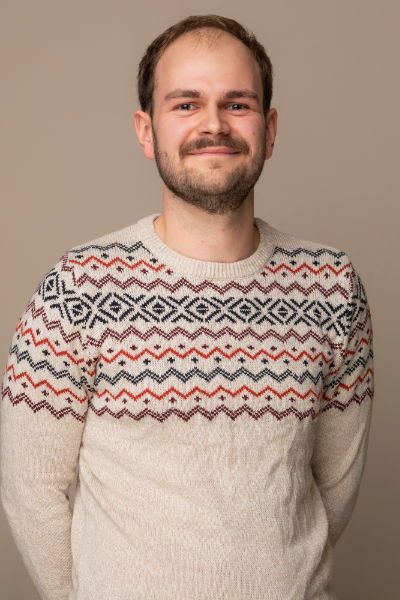
Luca Lach
Luca Lach received his Master's Degree in Computer Science at Bielefeld University in 2019. His research is focused on the combination of Machine Learning and Object Manipulation in Robotics. Since November 2019, he is a Ph.D. Student in the NeuTouch project and investigates how tactile information can be leveraged to increase the manipulation performance of mobile service robots at PAL Robotics.
4TH MAY, 17:20-17:40 (CEST)
Development of a Soft Zwitterionic Coating for Chronic Intrafascicular Peripheral Nerve Implants
Authors:
| Akouissi, Outman | Ecole Polytechnique Federale De Lausanne |
| Eggemann, Dominic | Eidgenössische Technische Hochschule Zürich (ETHZ) |
| Lacour, Stéphanie | EPFL |
| Micera, Silvestro | Scuola Superiore Sant'Anna |
The manipulation of soft materials is a design route to manufacture neural implants with biomimetic mechanical properties. Here, we report on a combination of two soft polymers – a zwitterionic hydrogel and silicone elastomer - to form soft intrafascicular peripheral nerve implants. We optimize the coating and adhesion of the gel to the elastomer so that the soft system can withstand demanding intrafascicular implantation into nerves.
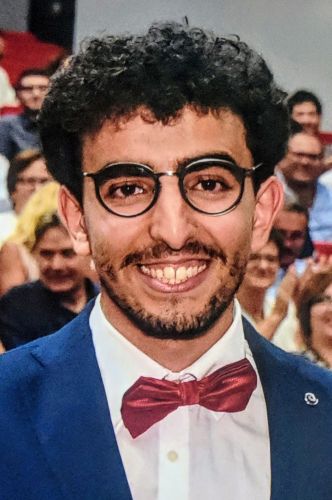
Outman Akoussi
Outman is an Italian Ph.D. student from EPFL, Switzerland. He is working in the Translational Neural Engineering and Soft Bioelectronic Interfaces laboratories lead by Prof. Silvestro Micera and Prof. Stephanie Lacour respectively. He is currently developing intrafascicular peripheral nerve implants using soft materials, in order to reduce the nerve-implant mechanical mismatch and to therefore increase the longevity and performance of such neural interfaces.
4TH MAY, 17:40-18:00 (CEST)
Studying Population Coding in Human Tactile Afferents Using Large Scale Neural Simulations
Authors:
| Corniani, Giulia | University of Sheffield |
| Casal, Miguel A | Istituto Italiano Di Tecnologia |
| Panzeri, Stefano | Italian Institute of Technology |
| Saal, Hannes P | University of Sheffield |

Giulia Corniani
Giulia is currently a Ph.D. student at the Active Touch Laboratory of The University of Sheffield (UK). Giulia is a Marie Skłodowska-Curie fellow as a member of the Neutouch project. Her research focuses on computational models of the spiking activity of tactile afferents with a primary interest in the human hand and realistic interactions.

MIGUEL ANGEL CASAL
Miguel is a Ph.D. student both in the Università di Genova and Istituto Italiano di Tecnologia (at the Neural Computation Laboratory). He is a Marie Skłodowska-Curie fellow of the Neutouch project. His current research is focused on understanding how tactile information is processed and used by the human nervous system, although he is also interested in systems biology and physics of complex systems.
4TH MAY, 18:00-19:00 (CEST)
Panel Session
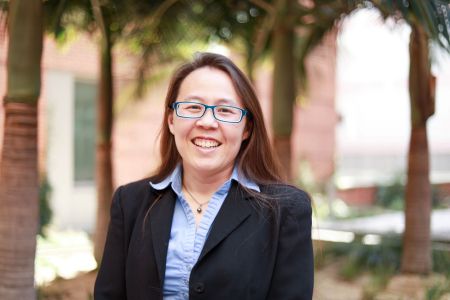
Veronica Santos
Veronica Santos is a Professor of Mechanical and Aerospace Engineering and Director of the UCLA Biomechatronics Lab (http://biomechatronics.ucla.edu). Her research interests include hand biomechanics, human-machine systems, tactile sensing and perception, and prosthetics/robotics for grasp and manipulation. Dr. Santos was selected for a National Science Foundation CAREER Award and numerous teaching awards. She has served as an Editor for the IEEE International Conference on Robotics and Automation and as Editor-in-Chief for the 2020 IEEE Haptics Symposium. She is General Co-Chair for the 2022 IEEE Haptics Symposium and an Associate Editor for the ACM Transactions on Human-Robot Interaction.
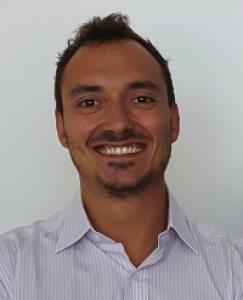
Francesco Petrini
Francesco has worked at the business development during the first steps of SensArs: IPs preparation and filing, funds raising, business plan preparation. During his entrepreneurial activity, he was awarded several prizes and grants. During his studies, he has visited for more than two years the most important schools of Europe, École polytechnique fédérale de Lausanne (EPFL, Switzerland) and Imperial College of London. He holds 2 patent applications.

Tony Prescott
Professor of Cognitive Robotics at the University of Sheffield and Director of Sheffield Robotics an inter-disciplinary research institute across both Universities in Sheffield
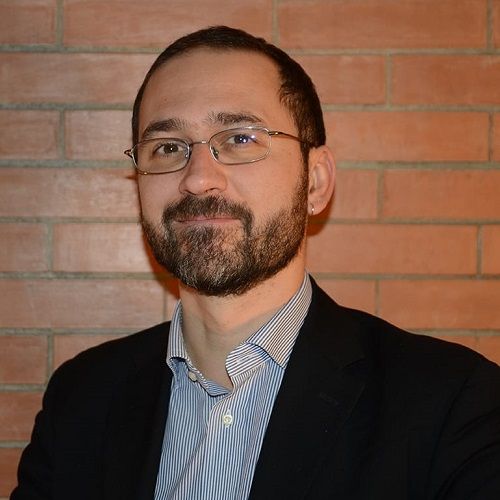
Alberto Mazzoni
Alberto Mazzoni is the PI of the Computational Neuroengineering Laboratory of The Biorobotics Institute of Scuola Superiore Sant’Anna. He graduated in Theoretical Physics at Pisa University and obtained a PhD in Neuroscience at the International School of Advanced Studies in Trieste. He is the author of >50 publications ranging from neural networks to neural coding, neuroprostheses and deep brain stimulation.
Organization Comittee
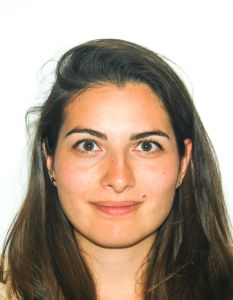
Giulia Dominijanni, Chair
Giulia Dominijanni is a Ph.D. student at the Centre of Neuroprosthetics of the École polytechnique fédérale de Lausanne. Giulia is a Marie Skłodowska-Curie Neutouch fellow. Her doctoral research focuses on the development of control strategies and sensory feedback approaches for supernumerary limbs in the context of human augmentation.
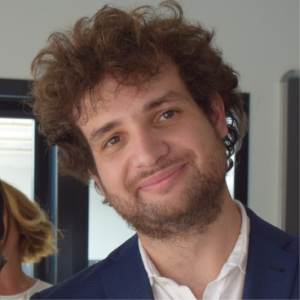
Michele Mastella, CO-CHAIR
Michele Mastella is a Ph.D. student in the Bio-Inspired Circuits and Systems (BICS) Lab, at the University of Groningen, with a research grant from the Horizon 2020 ITN Neutouch. He is a Marie Skłodowska-Curie fellow and he is part of the CogniGron Research Center. His research interests include bio-inspired spiking neural networks, microelectronics, neuromorphic chips, and touch.
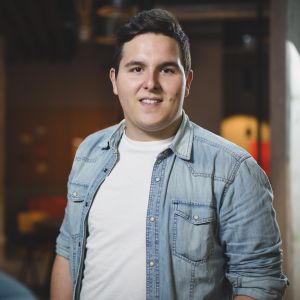
Miguel Angel Casal
Miguel is a Ph.D. student both in the Università di Genova and Istituto Italiano di Tecnologia (at the Neural Computation Laboratory). He is a Marie Skłodowska-Curie fellow of the Neutouch project. His current research is focused on understanding how tactile information is processed and used by the human nervous system, although he is also interested in systems biology and physics of complex systems.

Giulia Corniani
Giulia is currently a Ph.D. student at the Active Touch Laboratory of The University of Sheffield (UK). Giulia is a Marie Skłodowska-Curie fellow as a member of the Neutouch project. Her research focuses on computational models of the spiking activity of tactile afferents with a primary interest in the human hand and realistic interactions.

Chiara Bartolozzi
Chiara Bartolozzi is Researcher at the Italian Institute of Technology. She is currently leading the Neuromorphic Systems and Interfaces group, with the aim of applying the "neuromorphic" engineering approach to the design of robotic platforms as enabling technology towards the design of autonomous machines. Chiara is project coordinator for Neutouch, an MSCA Innovative Training Network.
Subscribe
The Minisymposium is part of the 2021 10th International IEEE/EMBS Conference on Neural Engineering (NER).
To attend the mini-symposium you need to register at the conference (here).
If you are interested in our activities please subscribe to our mailing list filling the interest funnel.